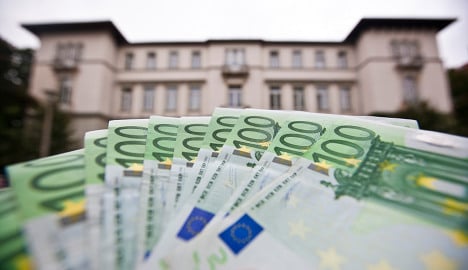The share of Germans scared of inflation has risen from 37 percent this spring to 46 percent in November, according to the survey conducted by the TNS research institute for Allianz Bank.
And 45 percent of the more than 2,000 people asked for the poll, said they were no longer sure what to do with their savings.
While shares and funds continued to lose popularity, property and pensions were more favoured, while just over half those asked said they still had money in savings accounts.
Around a third of respondents said they had no or little confidence in the stability of the euro, while a third said they still trusted it and another third had some faith left in the currency.
The poll comes on the eve of a crucial meeting of European leaders desperate to work out how to tackle the continent’s sovereign debt crisis, which threatens to sink the euro and do deep damage to economies.
Although 42 percent of those asked said they were content with their savings, only a third said they were happy with their net income. Just 23 percent believed they would see an income increase in the coming two years while 20 percent expected to be worse off.
Two thirds of Germans said saving money was very important, but most said they were not able to sock away as much as they wanted. A full 11 percent said they were unable to save anything.
The Local/DPA/mdm



 Please whitelist us to continue reading.
Please whitelist us to continue reading.
Member comments